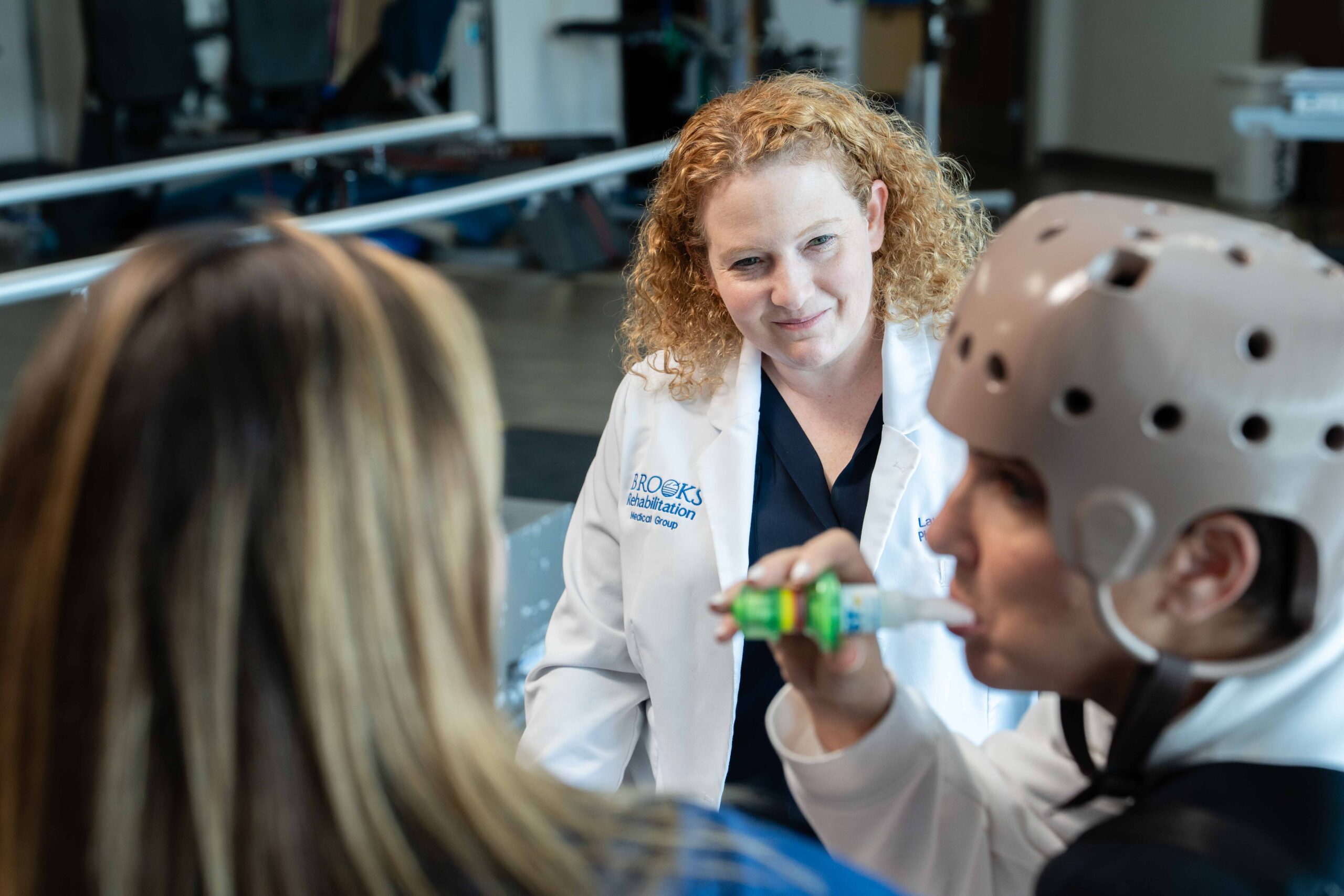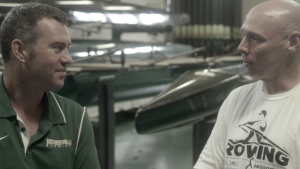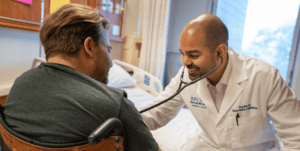Q&A with Lauren T. Shapiro, MD, MPH, FAAPMR

Back to physical health resource hub
Lauren T. Shapiro, MD, MPH, FAAPMR, is medical director of Brooks’ Stroke Rehabilitation Program, as well as associate program director of the Brooks/Mayo PM&R Residency Program. She is board-certified in physical medicine and rehabilitation (PM&R) and brain injury medicine, with a medical practice spanning more than 20 years.
Dr. Shapiro received her medical degree from the State University of New York (SUNY) Stony Brook School of Medicine, Stony Brook, New York. She completed a residency in PM&R at the Northwestern University Feinberg School of Medicine program at the Rehabilitation Institute of Chicago, where she served as chief resident. She also earned a master’s degree in public health from Johns Hopkins Bloomberg School of Public Health in Baltimore, Maryland. Throughout her career, Dr. Shapiro has served extensively as a professor and educator.
What first interested you in becoming a physician?
I loved science, and particularly how it could be used to solve problems and help others. I also developed a strong interest in health care policy and advocacy. So, medicine seemed like a great fit. I also considered becoming a veterinarian, because I love animals, but I thought dealing with just one species might be easier.
How did you decide on physical medicine & rehabilitation?
While on my rotations, I asked each of the attending physicians if they were to start all over again, which specialty they would have chosen. Many of them said “PM&R.” My medical school at the time did not have a PM&R elective, so I set up a rotation at a teaching affiliate hospital. It was amazing to see how people who survived really catastrophic diseases and injuries improved their functions and quality of life. I loved the interdisciplinary nature of the field; I found I was always learning from other members of the team. I was also attracted to providing the continuity of care to patients – from acute through inpatient and then to outpatient.
How did you learn about Brooks?
I was working in Miami, and I found myself in situations where patients had to seek rehabilitation care elsewhere. Many of them wound up at Brooks, and I was very impressed with the care they received. Brooks’ programs like the Neuro Recovery Center, the Brain Injury Clubhouse and the Aphasia Center are rare and very much needed. It was clear that Brooks provided outstanding outpatient neuro-rehabilitation therapies at so many sites throughout the region.
With your background in education, your role as the Associate Director for the PM&R Residency Program is a perfect fit. What are some of your top goals for the program?
My primary goal is to ensure our graduates are well-prepared to provide the best possible care to people living with disabilities, regardless of their diagnosis or the setting in which they are seeking care. I want them all to be successful in whatever clinical, educational, and/or research endeavors they choose to pursue.
Is there a specific reason you focused on stroke care?
I started my career as a general PM&R physician and did a little bit of everything. I love practicing in the inpatient rehabilitation setting, where stroke is typically the most common diagnosis. I had the opportunity to earn board certification in the subspecialty of brain injury medicine, and I subsequently focused more on serving patients with brain injury and stroke. Many of these patients have a complex interplay of physical, cognitive, communicative, and/or emotional impairments, which can be challenging. I find it very gratifying to work with them and help them achieve their goals.
As Stroke Medical Director, what differentiates Brooks from other health systems?
Stroke recovery takes time, and Brooks offers outstanding rehabilitation services across the entire continuum of care. Our three inpatient rehabilitation programs are all excellent and we offer equally strong home health services and outpatient therapies. The community programs are also second to none.
Brooks is also at the forefront of stroke recovery research and in education. We are participating in a number of multi-center trials investigating devices and techniques to improve outcomes. We’re training the next generation of physicians, therapists and nurses to become leaders in the field.
While we’re very dedicated to meeting the individualized needs of stroke survivors of all ages, our program also cares for a large number of younger stroke survivors. Our team works tirelessly to help them return to work, school and parenting roles, which is vitally important as the incidence of stroke in the younger population is rising.


